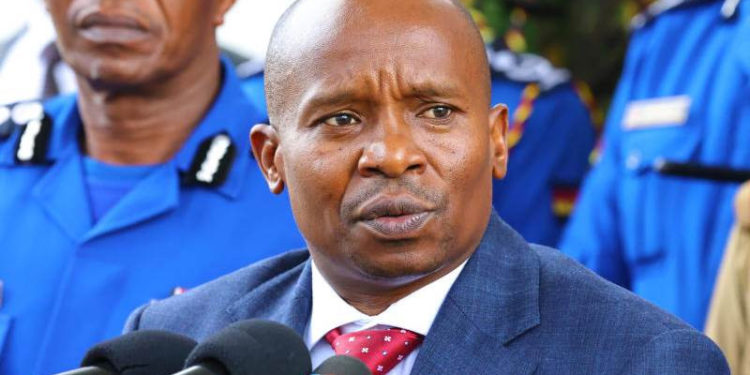Seventeen officers from the immigration department at Nyayo House have been apprehended and formally charged as part of a concerted effort to dismantle cartels impeding reforms in the processing and issuance of passports.
According to Interior Cabinet Secretary Kithure Kindiki, who addressed MPs on Thursday, a total of 17 officers were detained following an intelligence-driven operation aimed at cracking down on corruption within the department.
Kindiki revealed during his appearance before the National Assembly’s Committee on Regional Integration that investigations are ongoing to identify additional individuals involved in the intricate cartel networks that have long hindered reform efforts not only at Nyayo House but also in various immigration offices nationwide.
Last September, the government launched an ambitious initiative to overhaul the immigration department, initiating a crackdown specifically targeting corrupt officials at Nyayo House in response to public outcry over delays in passport processing.
On February 23, Kindiki announced a renewed crackdown at Nyayo House, reiterating the government’s determination to eradicate corruption within the Immigration Department and ensure accountability for those responsible.
He emphasized that individuals found guilty would face removal from their positions and be subject to prosecution and financial penalties.
Acknowledging the substantial challenges and persistent acts of sabotage within the department, Kindiki assured MPs that measures were being taken to streamline operations.
He disclosed that his office has assumed responsibility for public communication regarding passport processing until the department’s operations are fully optimized.
Additionally, Kindiki informed MPs of government efforts to address budgetary limitations that have contributed to processing delays, noting the settlement of pending bills totaling Sh380 million and approval from the National Treasury for the department to retain a portion of its revenue to alleviate budget constraints.
In his February 23 statement, Kindiki took accountability for the sluggish pace of reforms, citing years of inadequate investment in passport production infrastructure as a contributing factor.
Nevertheless, he reassured stakeholders that progress had been made in securing funding and resolving outstanding supplier debts to facilitate smoother passport printing processes.

















